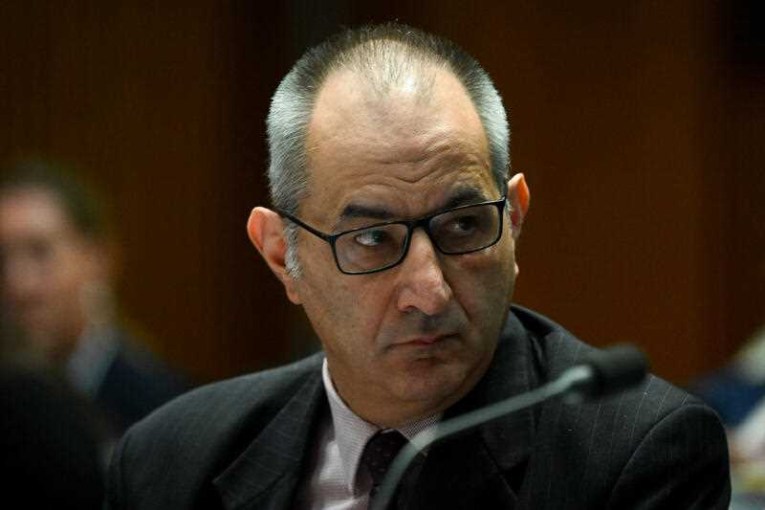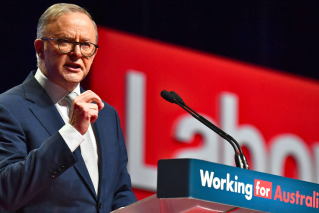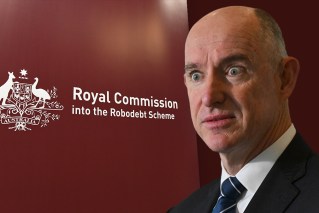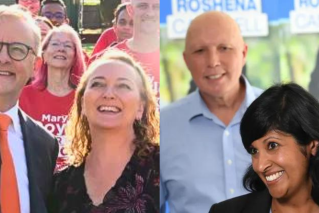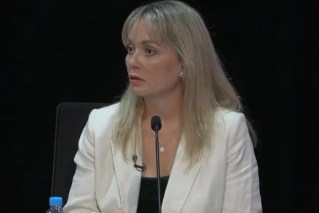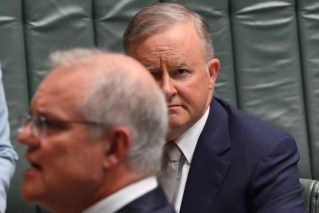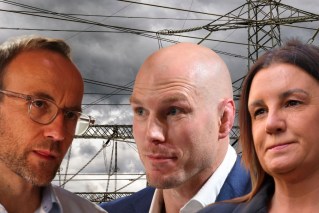Labor lashes Coalition’s ‘tattered’ economic credentials after interest rate rise

Labor has been quick to lash the federal Coalition after Tuesday’s historic hike to official interest rates.
Shadow treasurer Jim Chalmers said the Reserve Bank of Australia’s decision to raise the cash rate by 0.25 percentage points to 0.35 per cent had destroyed the government’s claims of better economic management.
“Scott Morrison’s economic credibility was already tattered and now it is completely shredded,” he said.
But Mr Morrison again defended his government’s record, saying the RBA’s rise – which followed last week’s unexpectedly strong inflation figures – was further proof that Australia’s economy had recovered from the worst impacts of the pandemic.
He said Australians and the government had been preparing “for some time” for the move from emergency low-level rates.
“Throughout the course of the pandemic, we have seen them double their buffers on their mortgages,” Mr Morrison said.
“We have seen them strengthen their own balance sheets in preparation for what they always knew would not be the continuation of extraordinarily low rates from the RBA.
“That’s not something that Australians reasonably thought would go on forever.”
Tweet from @naveenjrazik
Tuesday’s move was the RBA’s first rate increase since November 2010 and came after the rate had been held at a record-low 0.1 per cent since November 2020.
It is also the first time since 2007 that interest rates have risen during a federal election campaign. Mr Howard’s Coalition government lost the election – and Mr Howard his seat – by a landslide a fortnight later.
At the time, then-PM Mr Howard sympathised with those affected.
“I would say to the borrowers of Australia who are affected by this change that I am sorry about that and I regret the additional burden that will be put upon them as a result,” he said.
At that time, interest rates hit an 11-year high of 6.75 per cent and it was the sixth rate rise since the previous election.
Mr Morrison, who faces an election on May 21, said he understood the rise would be tough for some households but the economy was strengthening.
“Of course I have sympathy with that (rate rise impact) … and we expressed our concern about that in what we did in this year’s budget,” he said.
“A 25 basis point increase in the cash rate, for those who will be paying more, that will be harder and we understand that,” he said.
RBA governor Philip Lowe said the board judged it was the right time to begin withdrawing some of the extraordinary monetary support put in place to help the Australian economy during the pandemic.
“The economy has proven to be resilient and inflation has picked up more quickly, and to a higher level, than was expected,” Dr Lowe said.
“There is also evidence that wages growth is picking up. Given this, and the very low level of interest rates, it is appropriate to start the process of normalising monetary conditions.”
Figures released last week showed annual inflation rising to 5.1 per cent and underlying inflation increasing to 3.7 per cent – well above the RBA’s 2-3 per cent target.
“This rise in inflation largely reflects global factors,” Dr Lowe said.
“But domestic capacity constraints are increasingly playing a role and inflation pressures have broadened, with firms more prepared to pass through cost increases to consumer prices.”
A further rise in inflation is expected in the near term.
“The board is committed to doing what is necessary to ensure that inflation in Australia returns to target over time,” Dr Lowe noted in his post-meeting statement.
“This will require a further lift in interest rates over the period ahead.”
Markets are already pricing in another rise in June – with bets split between another 25-basis-point hike and an even bigger increase.
If passed on in full by the banks, Tuesday’s rise will add $65 a month to repayments on a $500,000 mortgage – and twice that for those who owe $1 million.
Dr Chalmers said the decision would hit millions of Australians.
“This is a full-blown cost-of-living crisis on Scott Morrison’s watch. The PM has an excuse for everything and a plan for nothing,” he said.
The RBA’s central forecast for 2022 is for headline inflation of about 6 per cent and underlying inflation of about 4.75 per cent.
By mid-2024, headline and underlying inflation are forecast to have moderated to about 3 per cent.
“These forecasts are based on an assumption of further increases in interest rates,” Dr Lowe said.
“The board is committed to doing what is necessary to ensure that inflation in Australia returns to target over time.”
At a rare press conference on Tuesday afternoon, Dr Lowe said a series of global price shocks – including the pandemic’s disruption of supply chains and Russia’s invasion of Ukraine – had pushed up inflation in Australia.
“Inevitably these shocks to global prices do flow through into higher inflation for Australia. But the higher inflation outcomes have a domestic component as well,” he said, citing the difficulty for some businesses in finding workers.
“Looking forward, we expect a further increase in the inflation rate as the effects of global developments wash through the year-end inflation figures.
“Our central forecast, which is based on an assumption of further interest rate increases, is underlying inflation will decline to the top of the target band for 2024. But if interest rates were to remain unchanged, inflation would higher than this, perhaps substantially higher.”
-with AAP
